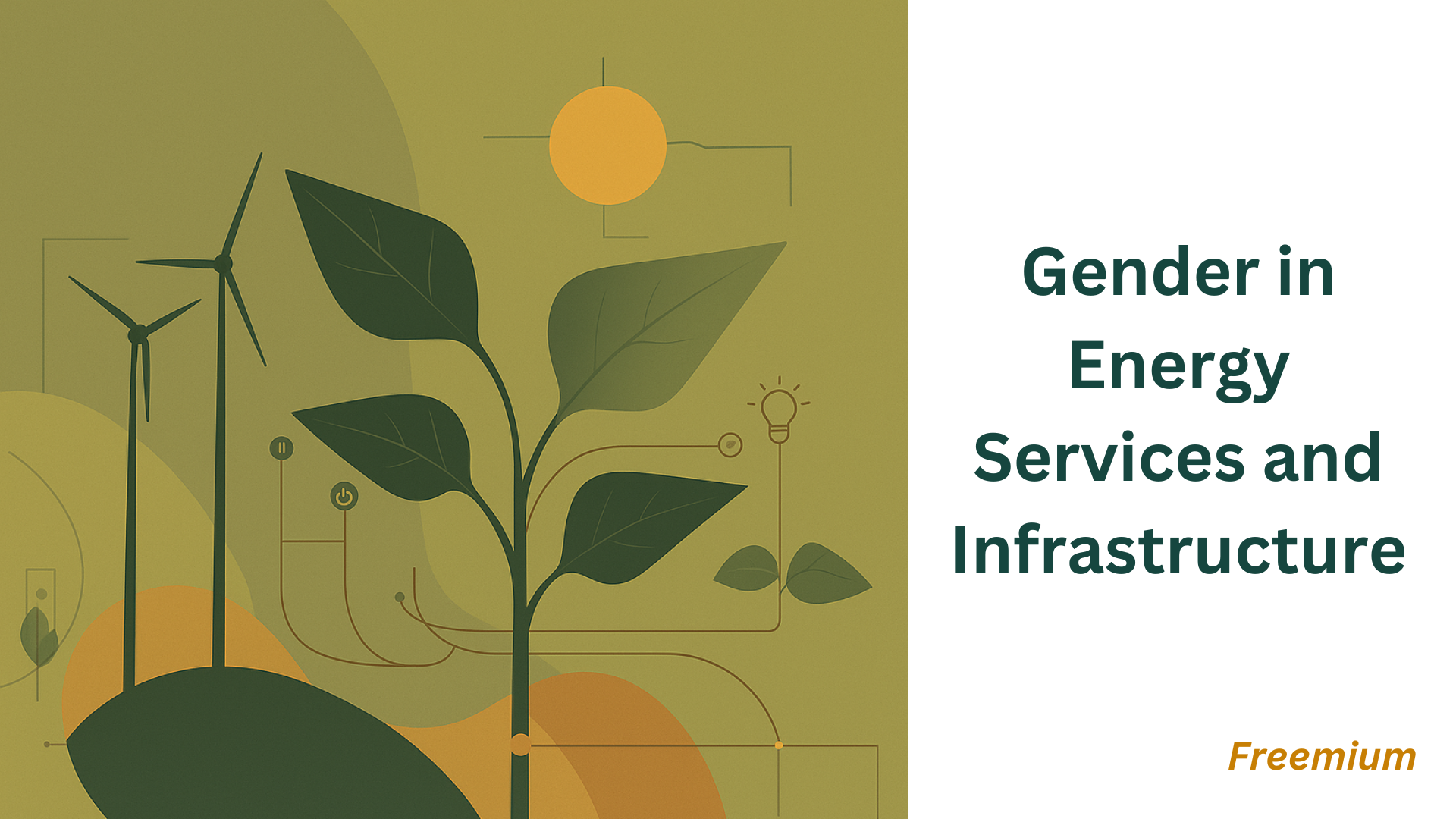What web browser should I use?
The Open edX platform works best with current versions of Chrome, Edge, Firefox, or Safari.
See our list of supported browsers for the most up-to-date information.

Energy isn’t neutral. It impacts people differently, and people use it differently.
Understanding this, understanding the role of gender and intersectionality in energy systems and infrastructure is a critical engineering skill. This EXPLORE Energy Digital Academy (EEDA) course therefore aims to equip energy engineering students with the knowledge and practical tools to design, plan, and implement inclusive energy systems and solutions. Because inclusive energy systems are more effective, they are more sustainable, more innovative, and they are simply put better engineering.
The course consists of 3 modules as well as an end-of-course quiz, and is estimated to require a total of 7 hours. The three modules are:
Module 1: Introduction to Gender in Energy services and infrastructure
Module 2: Gender & Intersectionality – an introduction
Module 3: Gender and intersectionality in engineering innovation
There are “challenges” attached to each module. These are optional and ungraded, and bring the totale learning time up to 20 hours. (See more below for information on an instructor-led “Premium” version of the course.)
Abstract: This course equips future energy professionals with the knowledge and practical tools to integrate gender and intersectionality into the design, planning, and implementation of energy systems. Through interactive content including case studies, reflective exercises, quizzes, and video materials, learners explore how social factors - such as gender, age, disability, income, and ethnicity - shape access to and impact of energy solutions. The course thus fosters critical thinking and challenges learners to design technologies that by being inclusive are also more innovative, effective, and sustainable.
Uniqueness: This course breaks new ground by embedding gender and intersectionality at the core of technical energy education - a dimension often overlooked in traditional engineering curricula. It bridges the gap between engineering and social impact, empowering students with a practical, action-oriented approach to inclusive design. Using real-world examples and norm-critical thinking, the course offers a unique blend of social science and engineering practice, giving learners both the mindset and skillset to lead the development of transformative energy solutions that serve diverse populations effectively.
Societal Relevance: Energy systems are foundational to daily life and sustainable development - but without intentional inclusivity, they risk reinforcing existing inequalities. This course addresses a pressing global challenge: how to ensure that clean, modern energy reaches everyone, regardless of gender or social background. By highlighting how intersecting identities influence energy access, use, and outcomes, the course positions learners to become agents of equitable energy transitions. In doing so, it contributes to broader efforts toward gender equality, social justice, and the achievement of the Sustainable Development Goals.
Intended Learning Outcomes: By the end of this course, learners should be able to:
Knowledge: Recognise how gender and intersecting identities (e.g., age, ethnicity, disability) influence access to and outcomes of energy systems and solutions.
Skills: Identify key gender gaps in energy systems—including access, education, labour market participation, and decision-making—and the limitations of one-size-fits-all approaches in addressing them.
Skills: Select appropriate elements from gender-transformative and intersectional approaches (e.g., diverse teams, inclusive input, user analysis) to improve energy project design and impact.
Responsibility and Autonomy: The course is automatically corrected; this category therefore does not apply.
Evaluation and Grading Criteria: The ("freemium") course evaluation is done through the automatically corrected questions in each Content Module of the course. The grading criteria of each Content Module is "Pass/Fail". To receive a "Pass" of the full course each one of the Content Modules, as well as the final quiz, have to be successfully completed.
Course Level as per Qualification Framework: This course corresponds to the European Qualification Framework (EQF) 2
Estimated Learning hours: This course corresponds to 0.25 SMCTS-credits (Stackable Master Credit Transfer System), which translates into 7 Estimated Learning Hours (ELH). With the optional (ungraded) “challenges”, the course is estimated to require 20 hours to complete.
Freemium vs Premium: This is a Freemium (=completely self-paced) version of the course. As such it is continuously open. There is no "real-life" instructor involved, and no discussion forum. All the learning reosurces can be used for free after registration. It is possible to, for a fee, receive a "Certificate of Completion of the Course through Automatically Corrected Assignments".
An instructor-led “Premium”-version of the course is also available.
There are no prerequisites for this course, but learners should have knowledge of basic concepts regarding energy systems.
Learning specialist
The Open edX platform works best with current versions of Chrome, Edge, Firefox, or Safari.
See our list of supported browsers for the most up-to-date information.
The EXPLORE Energy Digital Academy (EEDA) is an Educator-to-Educator collaborative environment in which educators globally commonly and co-creatively develop learning resources with the energy field that then can be used locally by any educator in the network to create courses adapted to their local regional needs.